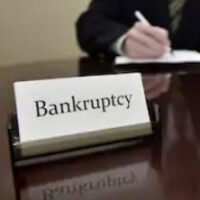Understanding The Role Of The Bankruptcy Trustee

In a traditional lawsuit, there are two sides, a plaintiff and a defendant, and they square off against each other. Sometimes, there may be other parties, or third parties, but no matter how many parties there are to a lawsuit, they all have a stake in the outcome, and they all have the potential to win or lose the case (assuming that it doesn’t settle before trial).
Bankruptcy is different from a traditional lawsuit because there is a trustee involved. The trustee is not the judge—and in fact, most people who file for bankruptcy will never even see or go before a bankruptcy judge. They will, however, meet with the bankruptcy trustee.
Why is a Trustee Needed?
You may think that your bankruptcy case is you versus all your creditors, whose debts you are trying to discharge—and that is partially true. The practical problem is that if you have 5, 10 or 50 creditors, they cannot all challenge your case. They cannot all look into your paperwork, verify that what you are saying is true, or evaluate the value of your assets.
That would be chaos—not to mention very expensive for creditors. You can imagine a creditor who is owed $100 having to spend thousands on a lawyer to verify that what you are saying in your bankruptcy case is true—it simply wouldn’t make any sense.
To solve this problem, in each bankruptcy case, a trustee is appointed—this is one person, who represents all your creditors, and represents them all equally.
What Does the Trustee Do?
The trustee is a fiduciary to the creditors. He or She is appointed to do what each creditor would want to do and he or she generally stands up for the rights of all your creditors in your bankruptcy case.
If you do have property that is not exempt, the trustee will sell that property and distribute the proceeds to your creditors.
The trustee is thus, in some ways, considered a party—if there is a contested matter, or a dispute, it may be the trustee that argues against you in court. The trustee also makes sure that no one creditor gets an unfair advantage, and unfair or unequal access to whatever assets you have.
Because the trustee is charged with safeguarding the interests of the creditors, the trustee will be the one to ask you questions about your bankruptcy paperwork and to investigate if anything seems out of line or suspicious.
If, at the end of your case, the trustee finds that you have no non-exempt assets to distribute, he or she will make a statement to that effect and your case will be closed as a “no asset” case. While creditors aren’t bound by that, and can always challenge something your case even if the trustee has otherwise found no irregularities.
The West Palm Beach bankruptcy lawyers at Kelley Kaplan & Eller at 561-264-6850 can help you with any credit questions you may have after your bankruptcy.
Resources:
investopedia.com/terms/b/bankruptcy-trustee.asp
natlawreview.com/article/creditor-s-perspective-bankruptcy-trustee-friend-or-foe



